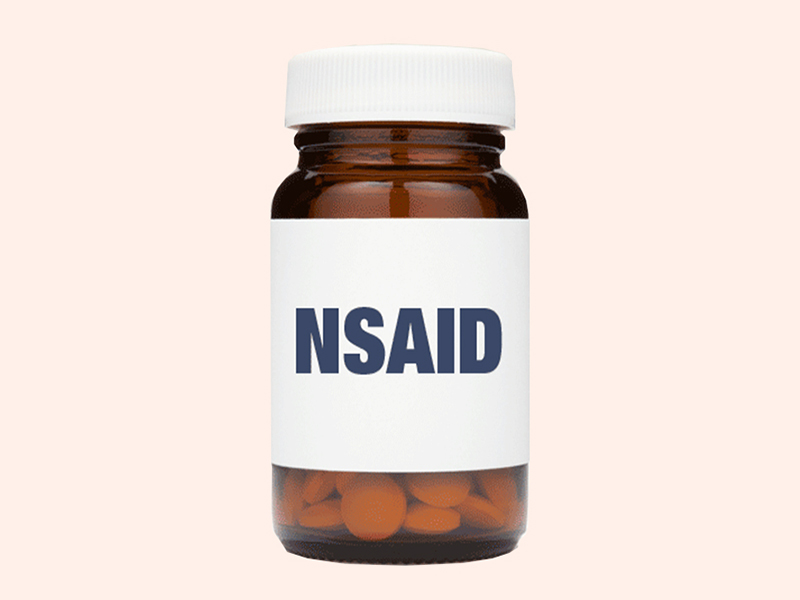Read about non-steroidal anti-inflammatory drugs (NSAIDs), a widely used medicine for relieving pain, reducing inflammation, and bringing down a high temperature (fever).
OVERVIEW
CORONAVIRUS ADVICE
There have been some news reports of anti-inflammatory painkillers, such as ibuprofen, making coronavirus worse. The Commission on Human Medicines has now confirmed there is no clear evidence that using ibuprofen to treat symptoms such as a high temperature makes coronavirus worse. You can take paracetamol or ibuprofen to treat symptoms of coronavirus. Try paracetamol first if you can, as it has fewer side effects than ibuprofen and is the safer choice for most people. Always follow the instructions that come with your medicine.
TYPES OF NSAIDS
NSAIDs are available as tablets, capsules, suppositories (capsules inserted into the bottom), creams, gels and injections. Some can be bought over the counter from pharmacies, while others need a prescription. The main types of NSAIDs include:
- ibuprofen
- naproxen
- diclofenac
- celecoxib
- mefenamic acid
- etoricoxib
- indomethacin
- high-dose aspirin (low-dose aspirin is not normally considered to be an NSAID)
NSAIDs may be sold or prescribed under these names or a brand name. They’re all similarly effective, although you may find a particular one works best for you.
WHO CAN TAKE NSAIDS?
Most people can take NSAIDs, but some people need to be careful about taking them. It’s a good idea to ask a pharmacist or doctor for advice before taking an NSAID if you:
- are over 65 years of age
- are pregnant or trying for a baby
- are breastfeeding
- have asthma
- have had an allergic reaction to NSAIDs in the past
- have had stomach ulcers in the past
- have any problems with your heart, liver, kidneys, blood pressure, circulation or bowels
- are taking other medicines
- are looking for medicine for a child under 16 (do not give any medicine that contains aspirin to children under 16)
NSAIDs might not necessarily need to be avoided in these cases, but they should only be used on the advice of a healthcare professional as there may be a higher risk of side effects. If NSAIDs are not suitable, your pharmacist or doctor may suggest alternatives to NSAIDs, such as paracetamol.
SIDE EFFECTS OF NSAIDS
Like all medicines, there’s a risk of side effects from NSAIDs. These tend to be more common if you’re taking high doses for a long time, or you’re elderly or in poor general health. Over-the-counter NSAIDs generally have fewer side effects than stronger prescription medicines. Possible side effects of NSAIDs include:
- indigestion – including stomach aches, feeling sick and diarrhoea
- stomach ulcers – these can cause internal bleeding and anaemia; extra medicine to protect your stomach may be prescribed to help reduce this risk
- headaches
- drowsiness
- dizziness
- allergic reactions
- in rare cases, problems with your liver, kidneys or heart and circulation, such as heart failure, heart attacks and strokes
If you get any troublesome side effects, stop taking your medicine and tell your doctor.
INTERACTIONS WITH OTHER MEDICINES
Some NSAIDs can react unpredictably with other medicines. This can affect how well either medicine works and increase the risk of side effects. It’s particularly important to get medical advice before taking an NSAID if you’re already taking:
- another NSAID
- low-dose aspirin or warfarin – medicines used to prevent blood clots
- ciclosporin – a medicine used to treat autoimmune conditions, such as arthritis or ulcerative colitis
- diuretics – medicines sometimes used to treat high blood pressure
- lithium – a medicine used to treat mental health problems, including bipolar disorder and severe depression
- methotrexate – a medicine used to treat rheumatoid arthritis
- a type of antidepressant medicine called a selective serotonin reuptake inhibitor (SSRI) – examples of SSRIs are citalopram and fluoxetine (Prozac)
If you’re not sure whether a medicine you’re taking is safe to take at the same time as an NSAID, check the leaflet that comes with it, or ask a pharmacist or doctor for advice.
FOOD AND ALCOHOL
The leaflet that comes with your medicine should say whether you need to avoid any particular foods or drinks. Ask your pharmacist or doctor if you’re not sure. For information about a specific medicine, check the A-Z of medicine leaflets on the GOV.UK website. Generally, you do not need to avoid any specific foods while taking NSAIDs. Tablets or capsules should normally be swallowed whole and without chewing with water or food to stop them upsetting your stomach. It’s usually safe to drink alcohol while taking NSAIDs, but drinking alcohol excessively may irritate your stomach.
OVERDOSES OF NSAIDS
Taking too much of an NSAID can be dangerous. This is known as taking an overdose. Contact your GP or NHS 111 for advice immediately if you take too much of your medicine and you experience problems such as feeling or being sick, an upset stomach or drowsiness. Call 999 for an ambulance immediately if you or someone else experiences serious effects of an overdose, such as fits (seizures), breathing difficulties, or loss of consciousness.
ALTERNATIVES TO NSAIDS
As NSAIDs can cause troublesome side effects, alternatives are often recommended first. The main alternative for pain relief is paracetamol, which is available over the counter and is safe for most people to take. NSAID creams and gels that you rub into your skin may be worth trying first if you have muscle or joint pain in a particular part of your body, as they tend to have fewer side effects than tablets or capsules. Your doctor may also be able to recommend different medicines and therapies depending on the health problem you have. For example, physiotherapy may help some people with muscle or joint pain.
